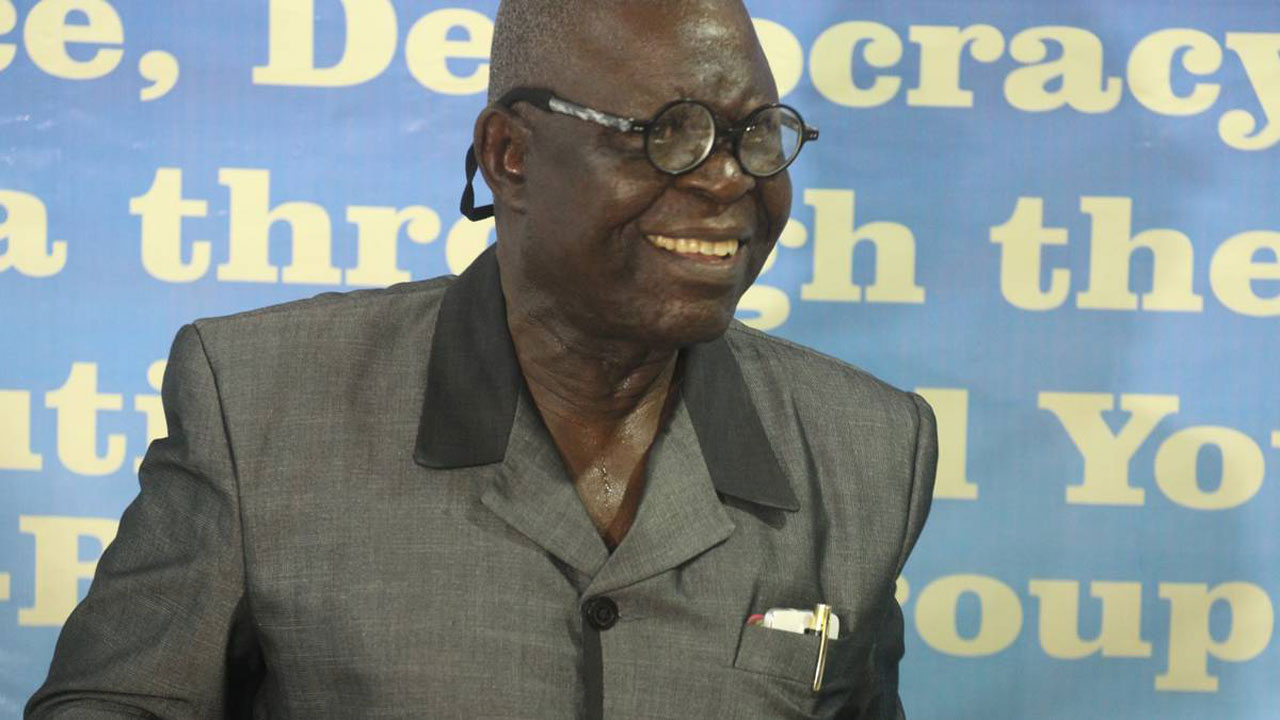
“As soon as the present Minister of Agriculture and Rural Development resumed office, he called a meeting with the agencies responsible for biotechnology in Nigeria to ascertain the safety of research results for humans and our environment and was assured that all was safe. However, not long ago, the debate on GMOs safety was open and we have learnt that earlier claims made by a Kenyan Harvard Professor, who has been in the forefront of promoting GMOs, haven’t been exactly accurate. For the purpose of unified communication, the three ministries are meeting to ensure that we get the facts right and all speak with one voice on the GMO issue. An official position will be issued when we are done with our own research and consultations.”
We are elated that the fraudulent claims of Harvard Kennedy School professor, Calestous Juma has come to light. In 2014, Calestous Juma wrote a widely disseminated policy paper in support of genetically modified organisms. As a development specialist, his policy suggestions and analysis carried significant weight in policy circles and governments.
What he neglected to mention was that the paper was written at the behest of seed giant Monsanto. In an embarrassing turn of events due to a public records request, the public was privileged to see that not only did the professor not disclose his close connections to Monsanto, Monsanto not only suggested the topic To Professor Calestous Juma, it went so far as to provide a summary of what the paper could say and a suggested headline. The company then connected the professor with a marketing company to pump it out over the Internet as part of Monsanto’s strategy to win over the public and lawmakers.
Monsanto suggested the research paper assigned to Juma be headlined “Consequences of Rejecting GM crops.” In December 2014, Juma published “Global Risks of Rejecting Agricultural Biotechnology,” This underscores the process by which these Bio-tech companies co-opt members of academia as well as people that should be regulating GMO technology/ protecting the interest of Nigerians, to instead promote and further their corporate interest while putting up a facade of independence and responsibility to the citizen, As currently seen with the Director General of NBMA (Dr. Rufus Ebegba) and NABDA (Prof.Lucy Ogbadu).
On Thursday the June 23, following a motion raised by a member of the House from Imo State, Rep Austin Ikechukwu and lawmakers in the House of Representatives summoned the Minister of Agriculture, Audu Ogbeh, in a bid to address concerns being raised over the importation of genetically modified foods into Nigeria. With special attention and cause for concern focused on the issuance of permits to Monsanto Agriculture Nigeria Limited for the commercial release of GMO cotton and confined field trials of GMO corn.
On Tuesday, July 26, Ogbeh, after meeting with the National Bio-safety committees, called for a public debate on GM technology which should involve Anti-GMO activists.
While we applaud the honourable members of the House of Representatives as well as the Ministry of Agriculture for listening and looking into the concerted concerns raised by over five million Nigerians, we restate our stand that the so-called permit issued to Monsanto to introduce GMOs into Nigeria should be overturned and the Bio-safety law as it exist in its current form should be repealed and replaced with a Bio-safety bill that puts the welfare and concerns of the Nigerian citizen above and beyond corporate interest.
We also call on the National Assembly to urgently investigate the process leading to the granting of the permit on Sunday, May 1, 2016 to assure Nigerians that we are not pawns in a commercial game to open Africa to toxic technologies as well as control our food systems.
On Sunday May 1, 2016, the National Bio-safety Management Agency (NBMA) approved Monsanto’s Application for the Commercial release of its GMO Cotton (MON15985) variety. It also approved Monsanto’s application for field trials of its GMO corn NK603 and MON89034 .
NBMA did this despite a petition that was submitted by 100 organisations representing more than five million Nigerians, including farmers, faith-based organisations, civil society groups, students and local community groups, expressing serious concerns about human health and environmental risks of genetically altered crops.
NBMA approved Monsanto’s proposal for Bt cotton despite the fact that our Neighbours Burkina-Faso, On April 14, 2016, the West African nation’s cabinet announced their goal to reduce the acreage for genetically modified cotton this season until it’s completely phased out in 2018 and replaced by conventional cotton.
NBMA approved the glyphosate herbicide resistant maize despite the IARC report that linked the active ingredient glyphosate to cancer. The WHO IARC report was composed of many peer-reviewed studies; it was free from conflict of interests and most importantly, In contrast, those done by Monsanto and submitted to EFSA for regulatory approval are unpublished, the scientists involved are unnamed.
• To be continued
• Gbadebo Rhodes-Vivour is the convener of Nigerians against GMO (N.A.G) and he writes from Lagos






